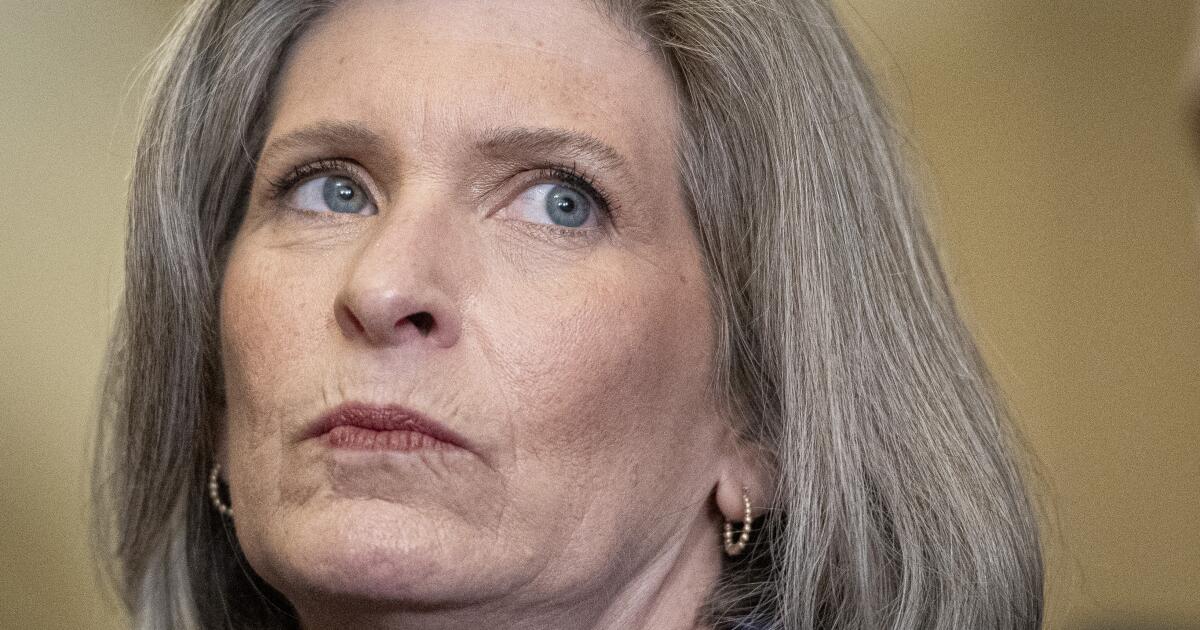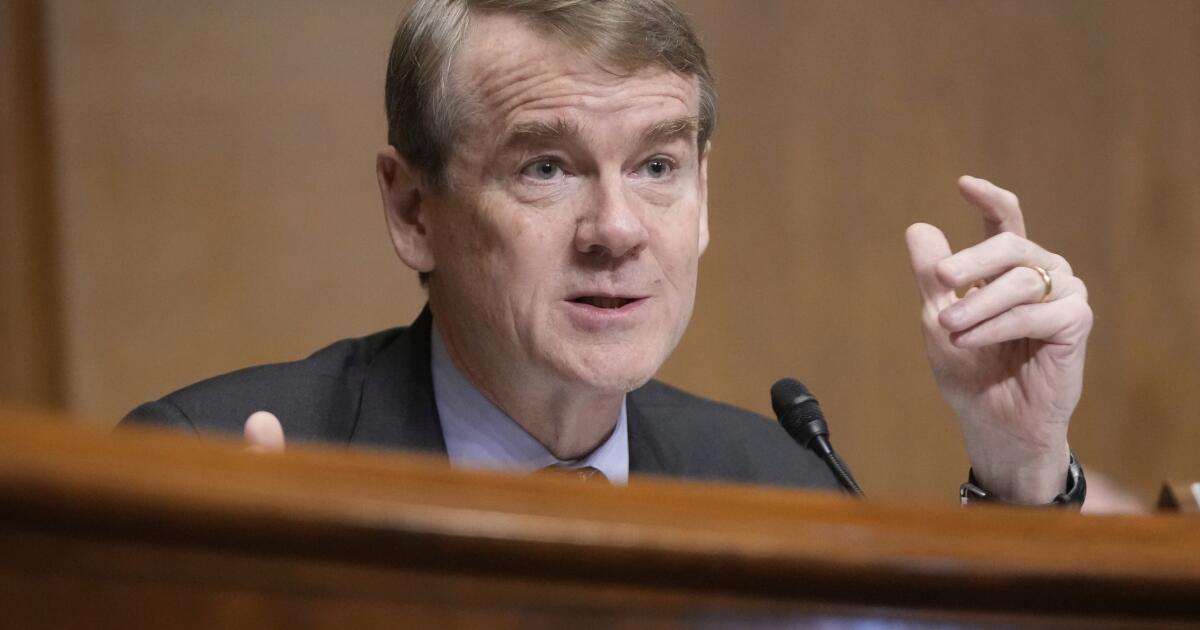DENVER — U.S. Democratic Sen. Michael Bennet is running for Colorado governor next year, saying in an interview with the Associated Press that he could better oppose President Trump from the governor’s office.
Bennet, whose practical approach to Democratic politics has been punctuated more recently by fiery and viral moments, has spent over 16 years in the U.S. Senate. Now, he joins a growing field of candidates from both parties vying for Colorado’s executive seat.
Democrats, in the minority in Congress and searching for a way forward politically, have seen a line of lawmakers looking for an exit from Washington. At least three other Senate Democrats are not running for reelection next year, and a number of other House members are leaving Congress to run for gubernatorial offices.
In the Colorado gubernatorial contest, Bennet’s stiffest competition will likely come from Democratic Atty. Gen. Phil Weiser.
Weiser was already on the attack Thursday, insinuating in a statement that Bennet shouldn’t leave his Senate seat at a time of such political upheaval in the nation’s capital.
Bennet has a political pulpit in Washington
Bennet’s position in Congress has given him a political pulpit in Washington, D.C., as when he questioned Robert F. Kennedy Jr. during the secretary of Health and Human Services’ confirmation hearings. But in an interview with the AP, Bennet said his decision to join the governor’s race isn’t a retreat from political battles.
“There is not a person in the Senate who’s more worried about what Trump is doing to our democracy and our economy than I am,” Bennet said. “I have come to believe strongly that the best place to fight that fight is from the state of Colorado.”
Bennet is currently pressing to make permanent expansion of the child tax credit, and in the past has advocated for bipartisan legislation to address immigration and border security. A central part of his campaign is tackling the affordable housing crisis.
In his 16th year in the Senate, Bennet has been frustrated with Congress’ seeming inability to act decisively. He is the latest in a line of Democrats leaving Congress to seek governor’s offices.
As Congress struggled last year to agree on wartime aid for Ukraine, the senator tried nearly everything possible to prod his colleagues forward: legislative maneuvers, bipartisan agreements and sharing personal stories to move the needle, as when he recounted how his mother had fled Poland during the Holocaust.
Bennet has sought a prominent position in the Democratic Party
Bennet has long sought a prominent position in the Democratic Party, including unsuccessfully running in the presidential primary in 2020. Last year, he was among the first Senate Democrats to openly call for then-President Biden to withdraw from the election, and amid recent criticism of Senate Democratic Leader Chuck Schumer of New York, suggested the party will be looking for new leaders.
“The Democratic Party has to figure out what it is we’re going to offer going forward,” Bennet said. “What we have to offer is a vision not into the past, but into the future, about how we are going to create an economy again in America that, when it grows, it grows for everybody.”
A former superintendent of Denver Public Schools, Bennet plans to focus his campaign not simply on opposing Trump, but on the cost of housing and healthcare and putting Colorado in a position to lead other states. He said he wants to make it “easier and faster to build housing” by removing red tape.
At a campaign launch event at Denver’s City Park on Friday morning, Bennet plans to announce endorsements from a number of Colorado Democrats.
The winning gubernatorial candidate will replace term-limited Gov. Jared Polis, a Democrat whose name has been bandied about as a presidential contender, though the governor has demurred from questions about his political future.
Bennet represents a similar wing of the Democratic Party to Polis — fiscally moderate and socially liberal — without the current governor’s quirkiness.
Polis revels in nerd culture, quoting Yoda in speeches to the Legislature, and is more inclined to buck party orthodox than Bennet, a child of a prominent diplomat with a professorial demeanor who delights in asking people what books they’re reading.
A Bennet victory, however, could open up a Senate seat to a new generation. The state’s younger Democratic representatives in the U.S. House, such as Joe Neguse, Brittany Pettersen or Jason Crow, may seek the position in the future.
The Senate’s Democratic Caucus is already anticipating a generational change. Three other Democrats — Sens. Jeanne Shaheen of New Hampshire, Gary Peters of Michigan and Tina Smith of Minnesota — have already announced they will not seek reelection in 2026.
The Republican candidates in Colorado’s gubernatorial race include two state lawmakers, Sen. Mark Baisley and Rep. Scott Bottoms. They face an uphill battle with the states’ political shifts as GOP contenders have failed to secure statewide offices in recent elections.
Bedayn and Groves write for the Associated Press. Groves reported from Washington.


